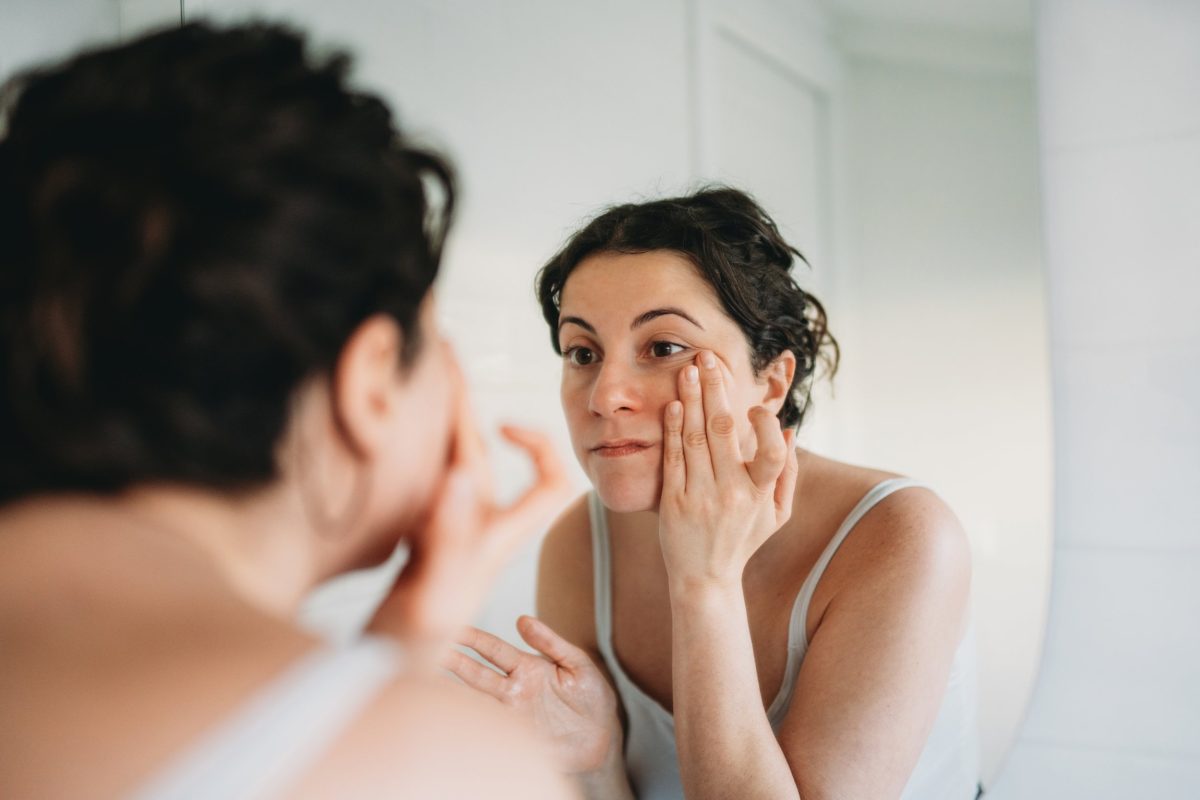Short-Term Effects of Alcohol on the Skin
Drinking alcohol, even in small amounts, can have immediate effects on your skin and eyes. Many people wake up after a night of drinking feeling dissatisfied with their appearance. This is often due to the diuretic effect of alcohol, which dehydrates the skin, making it look dull and dry. To combat this, it’s essential to drink plenty of water and use a hydrating moisturizer.
Alcohol can also cause facial flushing, as it dilates the tiny blood vessels in the skin. This redness is often linked to acetaldehyde, a byproduct of alcohol metabolism, which triggers histamine release, leading to inflammation. People of East Asian descent are more prone to this reaction due to genetic factors that affect how they process alcohol.
In addition to dehydration and flushing, alcohol disrupts sleep, which can lead to a pale complexion, dark circles under the eyes, puffy eyes, and dry lips. If you forget to remove makeup or contact lenses, these issues can be exacerbated. For those with existing skin conditions like rosacea, seborrheic dermatitis, or psoriasis, alcohol can worsen symptoms, causing flare-ups.
To minimize these effects, it’s advisable to stay hydrated and alternate alcoholic drinks with water when socializing. This can help reduce the likelihood of a hangover and the visible signs of alcohol consumption the next day.
Long-Term Effects of Alcohol on the Skin
Even moderate drinking can have a negative impact on skin health over time. Dermatologists warn that regular alcohol consumption can lead to persistent issues such as dryness, dullness, and increased breakouts. This is partly due to alcohol’s effect on fluid balance and hormone levels, which can trigger acne.
Drinking more than the recommended 14 units per week can lead to more severe long-term skin problems. Repeated dilation of blood vessels may result in broken capillaries on the nose and cheeks, along with persistent redness. These changes can be difficult to reverse and may require professional treatments.
Alcohol also interferes with the body’s ability to absorb nutrients and produce collagen, which is vital for maintaining skin elasticity. This can lead to a sallow complexion, fine lines, and wrinkles. However, some of these effects can be reversed by increasing water intake, ensuring adequate sleep, and eating a balanced diet rich in vitamins A and C.
Severe Consequences of Heavy Drinking
For individuals who regularly consume large amounts of alcohol, the risks extend beyond cosmetic concerns. Prolonged heavy drinking can lead to serious skin conditions such as spider telangiectasia (broken vessels), red palms, generalized itching due to toxin buildup, and jaundice from liver disease. Liver disease can also cause hyperpigmentation around the eyes, mouth, and legs.
Heavy drinkers are also at higher risk of skin infections due to weakened immune function and increased photosensitivity, which can lead to blistering and crusty skin. Studies have shown a link between excessive alcohol consumption and an increased risk of skin cancer, including squamous cell carcinoma, basal cell carcinoma, and melanoma. The risk is particularly high for those who drink white wine frequently.
Can the Effects Be Reversed?
The good news is that many of the effects of alcohol on the skin can be reversed by reducing or stopping alcohol consumption. Dr. Shergill recommends taking a break from drinking for a month and assessing the changes in your appearance. This can help you understand the impact of alcohol on your skin and motivate you to make healthier choices.
Reducing alcohol intake allows the body to rehydrate and restore moisture to the skin. Ingredients like hyaluronic acid and glycerin can improve skin volume, while ceramides help repair the skin barrier and restore its natural glow. For broken capillaries, light therapy can gradually fade them over time.
Gentle exfoliation with alpha hydroxy acids (AHAs) and beta hydroxy acids (BHAs) can improve skin texture and address hyperpigmentation. Cutting down on alcohol not only benefits your skin but also lowers the risk of serious health issues such as cancer, heart disease, high blood pressure, liver disease, and stroke.
If you’re concerned about your alcohol consumption, tools like Drinkaware’s online “Drinking Check” can help you assess your habits. For heavy drinkers, it’s important to consult a healthcare professional before quitting, as withdrawal symptoms can be dangerous. Taking control of your drinking habits can lead to significant improvements in both your health and appearance.







